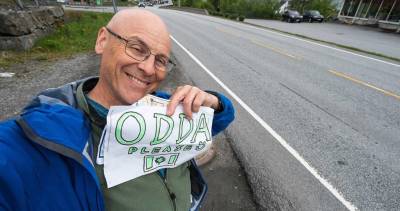Takeaways from this year’s Vancouver Writers Fest
A literary festival is about more than just books. The beauty of a multi-day event like the Vancouver Writers Fest is that it brings together some of the world’s best thinkers in conversation about today’s issues. Yes, it’s true: they’ve all written books (and you should buy them)—but the marker of a properly-executed writing festival is, in my opinion, the learnings we take away from it. Books are entry points into the minds of these incredible people, and reading their words is something truly special; still, hearing them speak off the cuff and expand on their ideas offers its own kind of magic.
I attended a few talks throughout the festival. Here are some tidbits I took away with me.
Humour remains central to our healing
At The Strength of Storytelling panel with Indigenous authors Alicia Elliott, Michelle Porter, and Katherena Vermette, humour took equal weight to topics of decolonization, the patriarchy, and motherhood.
Alicia Elliott, author of the compelling nonfiction work A Mind Spread Out on the Ground and a new novel about motherhood and mania called And Then She Fell, described the body after childbirth as something “like a Cronenberg movie”—to which the audience erupted in knowing laughter.
Self-doubt is probably inevitable, but it doesn’t have to be debilitating
Katherena Vermette, author of the interconnected three-part polyphonic series The Break, The Strangers, and the newest The Circle, emphasized the importance of writing as an act of play. An audience member asked her if she ever feels self-doubt, to which she replied she often does—but that when it comes to writing, she tries to shut the world out and focus on her relationship with her words.
Storytelling is an act of resilience
Michelle Porter, author of the raw, emotional, and at times whimsical A Grandmother Begins the Story, described how she found her literary voice through this novel. Coming from a family of musicians, she realized that while she wasn’t an instrumentalist herself, she could create her own music through the lyricism and cadence of her writing.
Later on, an Indigenous audience member asked the writers how they handle telling stories in English—a language that was forced upon them and their communities through colonization. Elliott answered that while she doesn’t know Michif, she sees telling stories in English as an act of resilience: a firm stance that Indigenous people are still here, and they have adapted, and they have taken back space, and they are not going anywhere.
Parameters are not always a bad thing
In a New York Times feature, it was revealed that the great novelist Lauren Groff wrote a version of her latest book, The Vaster Wilds, in iambic pentameter—you know, just for fun. When asked about it at her event in Vancouver, she said that she did it as an act of imagination: sometimes, she said, parameters are actually helpful in making you more creative, not less.
Hope is not foolish
During her sold-out talk, which saw 500 people listen to her speak, esteemed writer and thinker Rebecca Solnit introduced “wise hope”: the idea of insisting that all is not lost, and actively working towards a better future. Hope, she said, is different than optimism; the latter is often more a form blind positivity, while the former is about not giving up.
“Hope is a sense of possibility in a time of uncertainty,” she told the crowd.
Her new essay collection, It’s Not Too Late, which she co-edited with Thelma Young Lutunatabua, is all about hope for our troubled climate.
It’s okay—actually, it’s good—not to know everything
When asked about her experience as a journalist and the importance of reporting the truth in a world rife with misinformation, Solnit emphasized the value of stating the facts calmly and clearly. She also, though, said it’s vital to show where our flaws and holes are instead of pretending to have all the answers.
“Not knowing,” she said, “is an important part of reporting the truth.”
At the end of her event, Solnit received a standing ovation—something I’ve never seen for a writer before. If that’s not a testament to the power of a literary festival, I’m not sure what is.















Comments